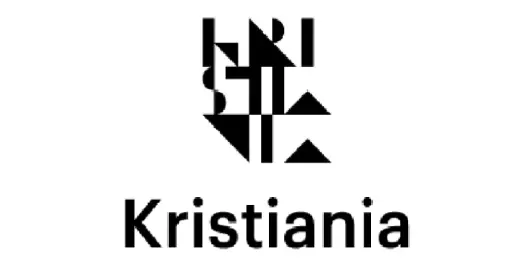Ledig stilling på Universitetet i Oslo
Blindern og Urbygningen (Foto: Wikimedia og Colourbox)
PhD Research Fellow in Cloud Computing and Proactive Adaptation
Deadline: 22.03.2020
Job description
Universitetet i Oslo
The University of Oslo is Norway’s oldest and highest rated institution of research and education with 28 000 students and 7000 employees. Its broad range of academic disciplines and internationally esteemed research communities make UiO an important contributor to society.
SIRIUS is a Centre for Research-based Innovation in Scalable Data Access in the Oil & Gas Domain. It is located at and led by the University of Oslo. The centre started operations in 2016 and has been funded by the Research Council of Norway for 8 years. Partner companies include Equinor, TechnipFMC, Schlumberger, IBM, DNV-GL, Evry, Computas, Kadme, Numascale, Dolphin Interconnect, OSISoft, SAP and TechnipFMC. Academic partners are the University of Oxford, Simula Research Laboratory and NTNU.
The aim of the centre is to provide a vehicle for delivering industrially-relevant, innovative research through collaboration between the centre’s partners and through associated projects. SIRIUS has a central role in the innovation ecosystem around the University of Oslo and the engineering, IT and oil companies in South-East Norway.
Position as PhD Research Fellow in Cloud computing and proactive adaptation is available at the Centre for Scalable Data Access (SIRIUS), Department of Informatics, University of Oslo.
The position is in the context of a new project, funded by the European Commission within the Horizon 2020 program, called MORPHEMIC: Modelling and Orchestrating heterogeneous Resources and Polymorphic applications for Holistic Execution and adaptation of Models In the Cloud.
The fellowship period is 3 years and devoted to carrying out research in the context of the MORPHEMIC project. The research is conducted in collaboration with other 11 partners of the project throughout Europe, both from academia and industry.
No one can be appointed for more than one PhD Research Fellowship period at the University of Oslo. Starting date as soon as possible.
More about the position
Cloud deployment decisions are often multi-objective with a trade-off between possibly conflicting goals. Any Cloud user will immediately recognise the situation where there is a desire to minimize the deployment cost, while keeping the application’s performance at the expected level. To autonomously make decisions in such situations, there must be a mechanism that guides the system to make the best deployment decisions. The concept of the utility has been advocated as a way to balance conflicting goals in autonomic computing.
MORPHEMIC proposes a unique way of adapting and optimizing Cloud computing applications by introducing the novel concepts of polymorph architecture and proactive adaptation. The former is when a component can run in different technical forms, i.e. in a virtual machine, in a container, as a big data job, or as serverless components, or on an accelerator like a Field Programmable Gate Array (FPGA), etc. The technical form of deployment is chosen during the optimization process to fulfil the user’s requirements. The quality of the deployment is measured by a user defined and application specific utility. Proactive adaptation is based on the current execution context and predicting future resource needs and possible deployments.
The MORPHEMIC platform will therefore be very beneficial for heterogeneous deployments in distributed environments combining various Cloud levels including Cloud data centres, edge Clouds, 5G base stations, and fog devices.
The main goal of the announced PhD position is to conduct research on supporting the proactive adaptation of Cloud applications. It will be achieved through dynamic computation of utility functions based on the current and future state of the applications and their requirements given in the form of high-level policies. The high-level deployment policies must be combined and related to the operational constraints on the application to understand the user’s context dependent utility and predict how this will evolve over time. To this end, advanced forecasting methods such as stochastic reinforcement learning techniques should be used to achieve the most accurate predictions.
Qualification requirements
The Faculty of Mathematics and Natural Sciences has a strategic ambition to be among Europe’s leading communities for research, education and innovation. Candidates for these fellowships will be selected in accordance with this, and expected to be in the upper segment of their class with respect to academic credentials.
- Master’s degree or equivalent in Computer Science
- Foreign degrees (M.Sc.-level) must correspond to a minimum of four years in the Norwegian educational system
- applicants must also be able to demonstrate interest in scientific research.
- the evaluation considers many aspects of excellence, as well as the personal drive and organizational skills.
- the ideal candidate for the position must have strong background in distributed computing, machine learning, and optimization.
- It is desireable that the candidate has good knowledge about the MELODIC platform and the CAMEL modelling language
Grade requirements:
The norm is as follows:
- the average grade point for courses included in the Bachelor’s degree must be C or better in the Norwegian educational system
- the average grade point for courses included in the Master’s degree must be B or better in the Norwegian educational system
- the Master’s thesis must have the grade B or better in the Norwegian educational system
- Fluent oral and written communication skills in English; mastering a Scandinavian language will be considered an advantage.
- English requirements for applicants from outside of EU/ EEA countries
The purpose of the fellowship is research training leading to the successful completion of a PhD degree.
The fellowship requires admission to the PhD programme at the Faculty of Mathematics and Natural Sciences. The application to the PhD programme must be submitted to the department no later than two months after taking up the position. For more information see:
http://www.uio.no/english/research/phd/
http://www.mn.uio.no/english/research/phd/
We offer
- Salary NOK 479 600 – 523 200 per annum depending on qualifications and seniority as PhD Research Fellow (position code 1017)
- Attractive welfare benefits and a generous pension agreement
- Vibrant international academic environment
- Career development programmes
- Oslo’s family-friendly surroundings with their rich opportunities for culture and outdoor activities
How to apply
The application must include:
- Cover letter - statement of motivation and research interests
- CV (summarizing education, positions and academic work - scientific publications)
- Copies of the original Bachelor and Master’s degree diploma, transcripts of records and letters of recommendation
- Documentation of English proficiency
- List of publications and academic work that the applicant wishes to be considered by the evaluation committee
- Names and contact details of 2-3 references (name, relation to candidate, e-mail and telephone number)
The application with attachments must be delivered in our electronic recruiting system, please follow the link “Apply for this job”. Foreign applicants are advised to attach an explanation of their University's grading system. Please note that all documents should be in English (or a Scandinavian language).
Applicants may be called in for an interview.
Formal regulations
Please see the guidelines and regulations for appointments to Research Fellowships at the University of Oslo.
No one can be appointed for more than one PhD Research Fellowship period at the University of Oslo.
According to the Norwegian Freedom of Information Act (Offentleglova) information about the applicant may be included in the public applicant list, also in cases where the applicant has requested non-disclosure.
The University of Oslo has an agreement for all employees, aiming to secure rights to research results etc.
The University of Oslo aims to achieve a balanced gender composition in the workforce and to recruit people with ethnic minority backgrounds.
Contact information
For further information please contact:
- Dr. Geir Horn, phone: +47 93059335, e-mail: geir.horn@mn.uio.no or
- Dr. Amir Taherkordi, phone: +47 22840584, e-mail: amirhost@ifi.uio.no
For questions regarding the recruitment system, please contact: Torunn Standal Guttormsen, phone:+47 22854272,e-mail: t.s.guttormsen@mn.uio.no
Apply for this job














